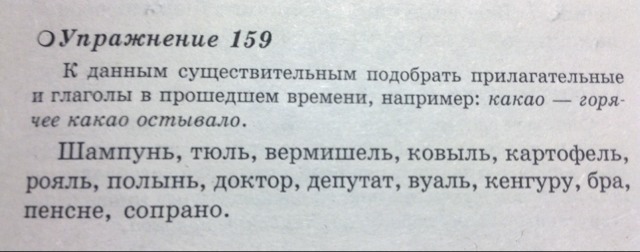Предмет: Русский язык,
автор: dashulj1
к данным существительным подберите прилагательные и глаголы в прошедшем времени
Приложения:

Ответы
Автор ответа:
24
ароматный шампунь постепенно закончился
лёгкая тюль шевелилась на ветру
Молочная вермишель кончилась
вырос молодой картофель
Рояль громко зазвучал
опытный доктор осмотрел
Российский депутат решил
резвый кенгуру подпрыгнул
светило яркое бра
звучало громкое сопрано
старое пенсне сломалось
горькая полынь заварилась
лёгкая тюль шевелилась на ветру
Молочная вермишель кончилась
вырос молодой картофель
Рояль громко зазвучал
опытный доктор осмотрел
Российский депутат решил
резвый кенгуру подпрыгнул
светило яркое бра
звучало громкое сопрано
старое пенсне сломалось
горькая полынь заварилась
dashulj1:
спасибо огромное)
Долго писала, извините)
Интересные вопросы
Предмет: Английский язык,
автор: l3168151
Предмет: Русский язык,
автор: Y000556728
Предмет: Французский язык,
автор: кристина1753
Предмет: Литература,
автор: kate170939